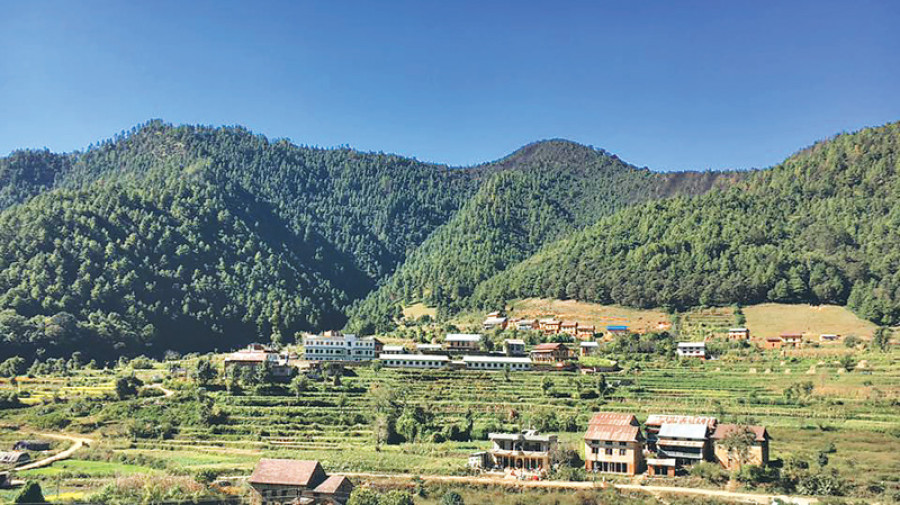Money
Chitlang boosts homestay services as arrivals jump
A rise in the number of tourists—both domestic and foreign—has encouraged residents of Chitlang, Makwanpur, to expand homestay facilities.
Pratap Bista
A rise in the number of tourists—both domestic and foreign—has encouraged residents of Chitlang, Makwanpur, to expand homestay facilities.
The villagers had for the first time opened four homestays in 2011 with support from District Development Committee. Now, the number has increased to 12.
The launch of Thankot-Chandragiri cable car service also contributed to the rise in the number of visitors to the village. Most of the visitors prefer trekking to Chitlang, which is 13km away from Thankot.
In the past years, people used to visit Chitlang only during the weekend, said Buddha Ratna Manandhar, proprietor of Gurjudhara Homestay. “But now we are receiving visitors throughout the week.”
So much so that the entire homestays are sometimes fully occupied and the operators have to offer tent facilities to visitors, Manandhar said.
Homestay operators earn Rs50,000-Rs80,000 per month. They charge Rs1,200 per day to visitors. Living in a Nepali village as a homestay guest is perhaps one of the fastest and best ways to know the real Nepal. Daily cultural activities are a major attraction of the homestay scheme.
“With the rise in arrives, the number of homestays is also increasing,” said Radha Krishna Basnet, coordinator of Community Homestays Committee. “The entire village is gradually changing into a homestay village.”
Tourists are welcomed with huge fanfare in Chitlang. Trout fish and goat cheese are among the food served.
Chitlang is not only witnessing an influx of holidaymakers, but also receiving an equal number of visitors perusing to study the history of the place.
In 2011, the Nepal Tourism Year campaign heralded the start of a new kind of hospitality service in the tourism sector.
According to a survey conducted by Nepal Rastra Bank, homestays have a positive impact on the environment and improve the quality of people’s lives.
A study titled “Dallagaon Homestay and Its Sustainability” conducted in Bardia, states the service has a great influence on creating awareness about health, education, income, social harmony and women empowerment in rural areas.
For example, prior to the launch of the homestay programme, Dallagaon village was very dirty. The people would throw garbage in the streets. After the launch of the homestay programme, the picture has changed. Waste papers and plastics are put in dustbins.
The rise in homestay activities has also boosted sales of local agro products in the village benefiting the entire community, the study showed.




 9.7°C Kathmandu
9.7°C Kathmandu















